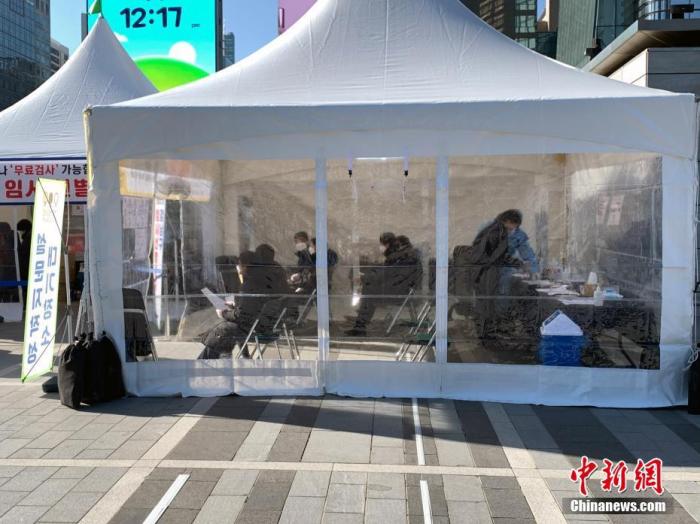China News Service, February 19th. According to a report by South Korea’s "Joongang Daily" on the 18th, South Koreans over 65 years of age cannot receive any new crown vaccines in the short term, and they will have to wait until April at the earliest.
South Korean health authorities have postponed the AstraZeneca vaccine for 370,700 high-risk elderly patients living in sanatoriums and nursing homes for two months. As a high-risk group, the elderly cannot escape the danger temporarily.
When reporting the vaccination sequence to the National Assembly in January, Director of the Korean Agency for Disease Control, Jeong Eun Kyung, stated that “Medical practitioners will give priority to vaccination, followed by the elderly in nursing homes with a high mortality rate.”
However, as the health department overturned the previous plan, the vaccination time for the elderly in the nursing home was delayed.
The picture shows people in the temporary screening station near the subway station of Gangnam Samseong Station in Seoul.
Photo by China News Agency reporter Zeng Nai
The Korean Disease Management Agency announced on January 28 that it would give priority to vaccinating patients and medical staff in nursing homes. The Food and Drug Safety Inspection and Consulting Group also expressed support on February 1, stating that “there is no reason to exclude the elderly from the scope of vaccination. However, the Central Drug Review Committee of the Food and Drug Safety Department issued a negative opinion on February 5. After that, experts who participated in the report meeting of the Department of Disease Management on February 8 strongly supported giving priority to vaccination for the elderly.
Under this circumstance, the Korean Food and Drug Administration recommended on February 10 "to be judged by doctors on their own." Eventually, the disease management agency decided on February 15 not to vaccinate the elderly.
For half a month before and after, the Department of Disease Management was hesitating and wandering about whether or not to vaccinate the elderly with AstraZeneca.
A related person from the Korean Disease Control Agency said, “In the license issued by the Food and Drug Administration, it is recommended that doctors independently determine whether to vaccinate AstraZeneca for people over 65 years old. What can we do?”
A relevant person from the Food and Drug Administration said, "We are only responsible for making scientific judgments based on data, and the final decision on whether to vaccinate the elderly should be made by the Department of Disease Control based on epidemic prevention needs and vaccine supply."
As of February 15, 40% of the deaths from the new crown pneumonia virus in South Korea have occurred in nursing hospitals and nursing homes.
If you count patients who died after being transferred to a general hospital, the proportion may be more than half.
From December 2020 to January 2021, there were 219 deaths in South Korea in the nursing hospital alone. It is expected that there will be more than 300 to 400 deaths in the next two months. Statistics show that the mortality rate of people in their 80s is 11 times the average death rate, and the mortality rate in their 70s is 3.5 times the average.

